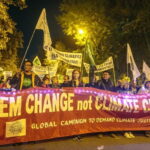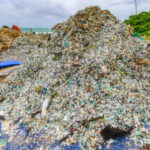Fulfilling current land restoration pledges in 115 countries would require only a small amount of the global annual GDP, a recent analysis has found. Successful implementation would require about 0.04% to 0.27% of global annual GDP, totaling about $311 billion to $2.1 trillion.
The researchers analyzed costs of 243 land restoration projects happening globally and found that the median cost ranged from $185 per hectare to $3,012 per hectare, with an overall median cost of $1,691 per hectare. Lower-cost opportunities include forest management for $185 per hectare, passive regeneration ($513 per hectare), grazing management ($631 per hectare) and assisted natural regeneration ($804 per hectare).
“Passive regeneration is basically just fencing off an area and leaving it alone,” Dewy Verhoeven, lead author of the study and Ph.D. candidate at Wageningen University & Research, told Mongabay News. “Those costs are very low, maybe you have to install a fence and that’s it. But the opportunity costs are very large because you cannot use the land anymore.”
Projects with the highest median costs include agroforestry ($2,390 per hectare), cross-slope barriers ($2,562 per hectare), irrigation ($2,886 per hectare) and silvopasture ($3,012 per hectare), which integrates trees and pasture for grazing livestock on the same land.
In total, land degradation projects would add up to about 0.38% to 2.65% of global GDP for one year; however, the authors noted that spreading the cost out over a decade would lower the annual cost to just 0.04% to 0.27% of global GDP. The authors published these findings in the journal Land Degradation & Development.
While the total percentage is small, an even distribution of costs or distributing costs by project location would place a higher burden on lower income countries. The report authors found that most projects are concentrated in sub-Saharan Africa as well as South and Southeast Asia, with sub-Saharan Africa accounting for almost half of all global land restoration pledges.
“From a global perspective, it’s very efficient to do a lot of restoration in lower income countries, because that’s where it’s relatively cheap. But they need help,” Verhoeven told Mongabay News.
The report recommended financing frameworks for more equitable distribution of costs, including establishing Payment for Ecosystem Services (PES), tapping the private sector and incorporating public financial support.
“Furthermore, it is essential to gain more insight in who bears the cost of landscape restoration. A better assessment of the costs and benefits from different actor perspectives (farmers, governments, private investors), including opportunity costs, is key in the design of new financing mechanisms to ensure their participation in landscape restoration practices,” the authors wrote in the study.
Land degradation is increasing rapidly. According to a report by Potsdam Institute for Climate Impact Research (PIK) and UN Convention to Combat Desertification (UNCCD), the amount of land degradation is increasing by about 1 million square kilometers per year, an area roughly the size of Egypt.
There are major economic incentives to invest in land restoration. UNCCD reported that for each dollar invested in land restoration, there are economic returns between $7 and $30.
As the authors of the recent land degradation study concluded, land restoration also improves ecosystem health and furthers progress on the UN Sustainable Development Goals.
The post Successful Land Restoration Results Would Require Less Than 0.27% of Global Annual GDP, Study Finds appeared first on EcoWatch.




